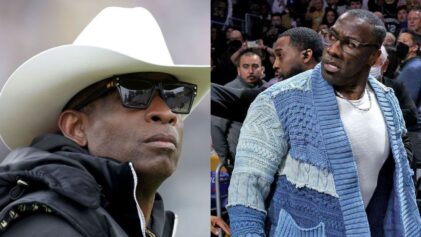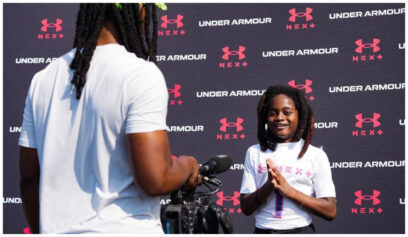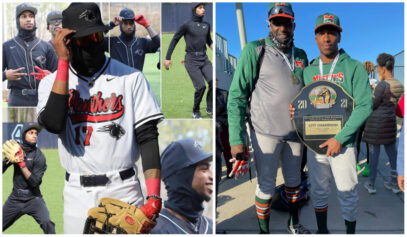College football is the ultimate personification of capitalism. From coast-to-coast, schools are being run as corporate juggernauts, reaping the benefits of free enterprise from television contracts, conference affiliations, booster clubs, sponsorships and ticket sales.
Football is one of the chief revenue generators on campus. The sports overwhelming popularity produces huge windfalls and creates massive profit margins for athletic department budgets.
In true capitalistic fashion, the heavyweight programs live in the penthouse, enjoying the spoils of lavish facilities, first-class travel amenities and games played during primetime viewing hours. On the flip side, smaller schools are forced to go the extra mile just to earn a small percentage of the money made by their affluent bigger brothers.
Although there are a host of schools dealing with stiff economic challenges, in the current mega millions climate of college football, Historically Black Colleges and Universities (HBCU) face the most difficult fiscal uphill climb.
Play For Pay
To offset some of these woes, athletic directors schedule road matches against the Goliaths of the sport in a play-for-pay game. Unfortunately, these contests are non-competitive affairs with the outcome pretty much decided by halftime.
During college footballs opening weekend, the HBCU non-conference slate of games against FBS (Football Bowl Subdivision) opponents sadly featured an array of routs with the black college squads being outscored, 728-95. Some of the lopsided results from the season opener included California beating Grambling State, 73-14; Middle Tennessee State defeating Jackson State, 70-14; Georgia Tech over Alcorn State, 69-6; New Mexico blanking Mississippi Valley State, 66-0 and Air Force knocking off Morgan State, 63-7.
This past weekends slate featured more of the same. The MEAC was hit hard with Illinois State cruising by Norfolk State, 67-14; UNC over North Carolina A&T, 53-14; Duke shutting out North Carolina Central, 55-0; and Boston College obliterating Howard, 76-0. Although it too lost, Hampton was competitive versus in-state foe Richmond, falling 31-28.
A Necessary Evil?
Honestly, I think its a necessary evil for smaller programs where funding continues to decrease, said Dr. Kristene M. Kelly, assistant professor of sports management and department chair for the School of Business and Technology at Saint Augustines University in Raleigh, N.C. HBCUs do not receive the same type of support from sponsors, donors or alums. The landscape of higher education funding continues to dwindle, thereby requiring schools to take this route of guarantee games. The problem I have is that HBCUs are the lowest paid of blowout for payout games.”
Kelly says, “smaller HBCUs may get from $15,000 – $50,000 for playing an FCS (Football Championship Subdivision) school. However, that same FCS school will receive $300,000 – $1 million from an FBS (Football Bowl Subdivision) school. With that being said, if HBCUs are going to play these types of guarantee games, I would say it needs to be the total package for the athletes exposure, experience, and of course, significant financial support to help them get better players for years to come.
These figures speak volumes to the huge disparity between the haves and have nots in college football. There is already a continental divide in terms of money separating the power five conferences (SEC, ACC, Big 10, Pac 12 and Big 12) from the rest of the pack. However, its a planetary gap when speaking of money and HBCUs versus traditional FCS or FBS schools.
Alumni and booster club donations serve well, but nothing trumps the undisputed impact television has on the success of a program. High school recruits yearn to play at a place where they can not only compete in a pro-style system, but display their skills on TV. While the amount of televised HBCU games has increased over the past 10-15 years, it vastly pales in comparison to the broadcast schedules of other FCS or Division II teams.
Nevertheless, HBCU fans will watch televised games from the non-conference blowouts to famed rivalry classics like the Southern Heritage Classic (Tennessee State-Jackson State), Magic City Classic (Alabama State-Alabama A&M), Fountain City Classic (Fort Valley State-Albany State) or Bayou Classic (Grambling State-Southern).
However, while the classics, conference matchups and homecoming games draw the most numbers at the turnstile, pay-for-play dates on the schedule stir up the biggest debate between fans over economic benefits, competitiveness and morale of the program. HBCU alumni from across the country have strong but varying views on the topic.
These type of games are good for school exposure. Unfortunately, it makes the school look very inferior. What can you learn as a coach or player losing a game 63-13 or 67-14?, said Norfolk State graduate Todd Spurlock of Richmond, Va. You learn that the other school has more skilled players and maybe even a better athletic program. Playing non-conference teams on a similar skill level seems logical, but money talks.
A Flawed System
Across the landscape, both fans and athletic administrators alike agree immediate wholesale changes must be implemented. In an attempt to counter this blemish, Kelly believes black colleges need to balance out the schedule with non-conference games versus schools with equal talent in terms of players and facility resources. This in turn will enhance competition and a schools ranking in the polls.
Playing non-conference schools on a similar talent level is always good for regional rankings and postseason eligibility. I dont have a problem with it being 50-50one money game every year (or every other year) but each year, there should be at least one to two regional opponents, said Kelly.
Yet while football rules as the collegiate cash cow, it isnt the only sport where HBCUs play bigger programs for financial advancement. College basketball is full of early-season games where perennial NCAA tournament teams suit up on the court versus MEAC and SWAC squads. Although there have been more wins than losses for the top-flight schools, black college hoopsters have pulled off some upset victories in the NCAA tournament and came within striking distance of triumph in regular-season games. Nevertheless, the overall talent level in basketball is just as unbalanced as it is in football and serves as a glaring reminder of the economic split between the schools.
I played basketball from 1996-2000. As a player, we cherished the experience of going to these big schools, said Bethune-Cookman College alumnus Valder Ned of Douglasville, Ga. We had the University of Florida down by 10 points in 1996 when they had Udonis Haslem and Mike Miller. But a series of technical fouls changed the flow of the game. The same thing happened when we had Georgetown down by 16 points in the second half but lost by two points. As players, we felt like we should be treated equally but we weren’t, so we tried to play as hard as we could to earn respect. As an alumnus, I don’t like to see these games because the odds are already stacked against them. However, getting money for these games helps the athletic programs, so you have to look at it from a different view.
There’s Got To Be A Better Way
While the previously listed contests were one-sided there were some competitive non-conference games in week two including a pair of clashes between HBCUs and traditional colleges. Lincoln defeated North Carolina Wesleyan, 28-17. Bowie State beat Brevard, 35-21. Bethune-Cookman edged Grambling State, 56-53. Tennessee State held off Jackson State, 35-25 and Arkansas Pine Bluff outlasted Morehouse in triple overtime, 29-27.
Black college football has an abundance of pride and pageantry which is deeply woven within the fabric of the sport. However, in order to maintain an adequate level of competitiveness and financial stability, athletic departments have to change the way they conduct business. HBCUs must mix up their non-conference schedule with FBS and FCS teams in order to avoid demoralizing blowouts.
Scheduling should also include playing non-conference games within a manageable driving distance from campus. Traveling outside the time zone or to places which would require a flight or long-distance ride on a chartered bus are expensive and create a hefty strain on an already tight budget. Improved fiscal strategies need to be put in place so the money earned from the payday games can be used to upgrade training facilities.
HBCUs will never be able to lure the blue-chip prospect or even the second-tier player away from a top-ranked program. However, with smart recruiting tactics and wise business policies, they can still win over the heart of the next grade of player. This will allow them to remain competitive and keep a pipeline of talent channeling through to the institution.
While the additional funding is great from guarantee games, Kelly added, “HBCUs must not only schedule solid regional competition, but also begin winning some of these games if we ever want to advance in postseason play and make a name for ourselves.




